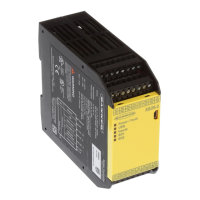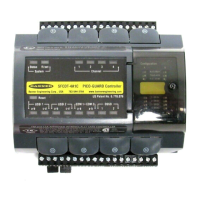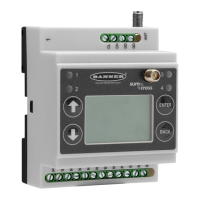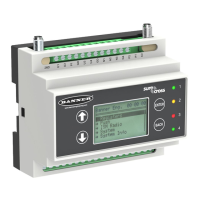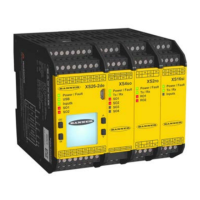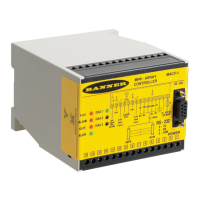82 P/N 133487
Banner Engineering Corp. • Minneapolis, U.S.A.
www.bannerengineering.com • Tel: 763.544.3164
SC22-3 Safety Controller
Instruction Manual
Appendix A
WARNING . . .
Point-of-Operation Guarding
When properly installed, the two-hand control device
provides protection only for the hands of the machine operator.
It may be necessary to install additional safeguarding, such as
safety light screens and/or hard guards, to protect personnel from
hazardous machinery. Failure to properly guard hazardous
machinery can result in a dangerous condition which could
lead to serious injury or death.
A.5 Two-Hand Control
The Safety Controller may be used as an initiation
device for most powered machinery when machine
cycling is controlled by a machine operator.
Using a two-hand control system makes the operator, in effect, a
“hostage” while the hazard is present, thus limiting or preventing
exposure to the hazard. The two-hand control actuators must be
located so that hazardous motion is completed or stopped before
the operator can release one or both of the buttons and reach
the hazard (see A.5.1, Separation Distance).
The SC22-3 safety inputs used to monitor the actuation of the
hand controls for two-hand control comply with the functionality
of Type III requirements of IEC60204-1 and ISO 13851 and
the requirements of ANSI NFPA79 for two-hand control, which
include:
• Concurrent actuation by both hands within a 500 ms time
frame
• Where this time limit is exceeded, both hand controls must
be released before operation is initiated
• Continuous actuation during hazardous condition
• Cessation of hazardous condition if either hand control was
released
• Release and re-actuation of both hand controls to re-initiate
the hazardous motion or condition (i.e., “anti-tie down”)
• The appropriate performance level of the safety-related
function (e.g., Control Reliability, Category, or SIL) as
determined by a risk assessment
CAUTION . . .
Hand Controls
The environment in which hand controls are installed
must not adversely affect the means of actuation.
Severe contamination or other environmental influences may cause
slow response or false ON conditions of mechanical or ergonomic
buttons. This may result in exposure to a hazard.
CAUTION . . .
Machine Control Must
Provide Anti-Repeat Control
Appropriate anti-repeat control must be
provided by the machine control and is required by U.S.
and International standards for single-stroke or single cycle
machines.
The level of safety achieved (e.g., ISO 13849-1 Category)
depend in part on the circuit type selected. See Section A.5.2.
The installation of the hand controls must consider:
• Failure modes that would result in a short circuit, a broken
spring(s), mechanical seizure, etc. that would result in not
detecting the release of a hand control
• Severe contamination or other environmental influences
that may cause slow response when released or false
ON condition of the hand control(s), e.g., sticking of a
mechanical linkage
• Protection from accidental or unintended operation
(e.g., mounting position, rings, guards or shields)
• Minimizing the possibility of defeat (e.g., hand controls must
be far enough apart so that they cannot be operated by the
use of one arm — typically, not less than 550 mm (21.7") in
a straight line, per ISO 13851
• The functional reliability and installation of external logic
devices
• Proper electrical installation per NEC and NFPA79 or
IEC 60204
When used in single-cycle or single-stroke mode, the machine
control must provide an anti-repeat feature so that the operator
must release the two-hand control actuators after each machine
cycle, before a new cycle can be initiated. In addition to the
anti-repeat of the machine control, the SC22-3 safety controller
input(s) can also be used to halt a machine cycle and help in
providing Anti-Repeat Control (see Caution below).
CAUTION . . .
Install Hand Controls
to Prevent Accidental Actuation
Total protection from defeat of the two-hand control
system is not possible. However, the user is required by OSHA
regulations to arrange and protect hand controls to minimize
possibility of defeat or accidental actuation.
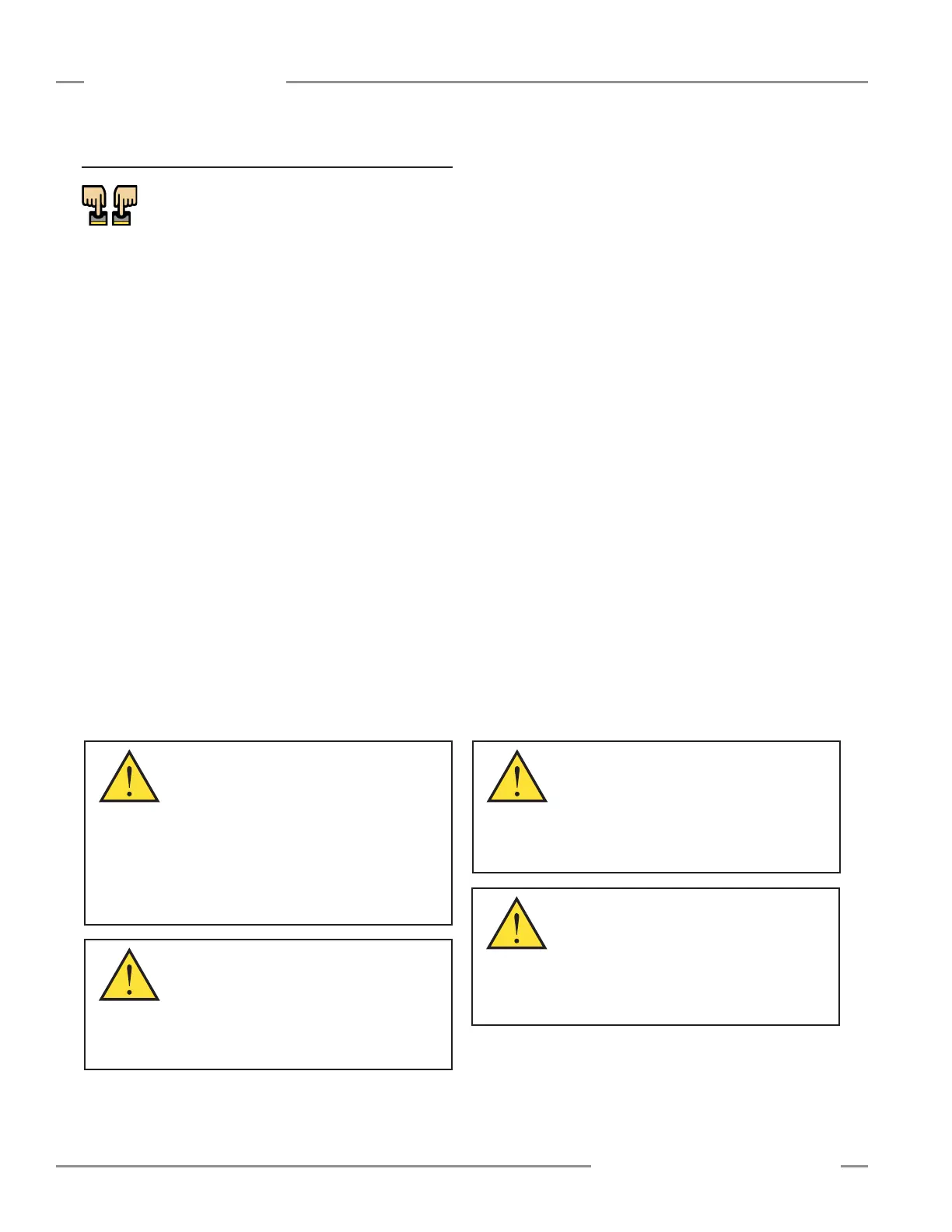